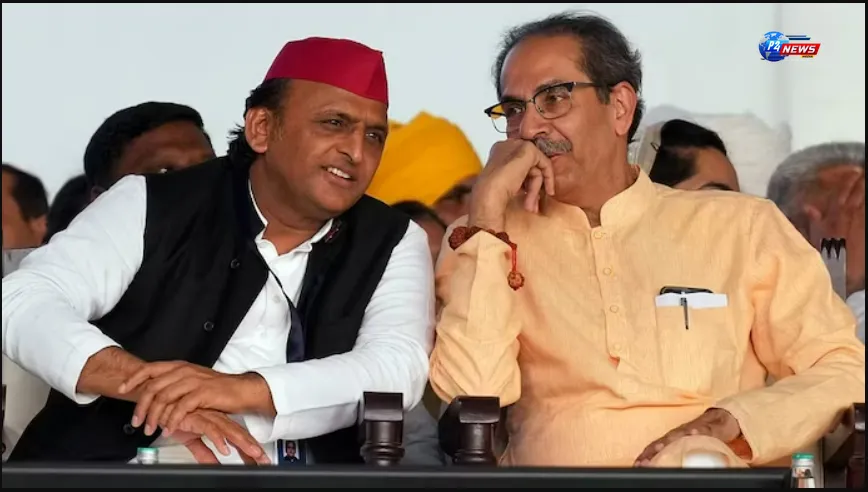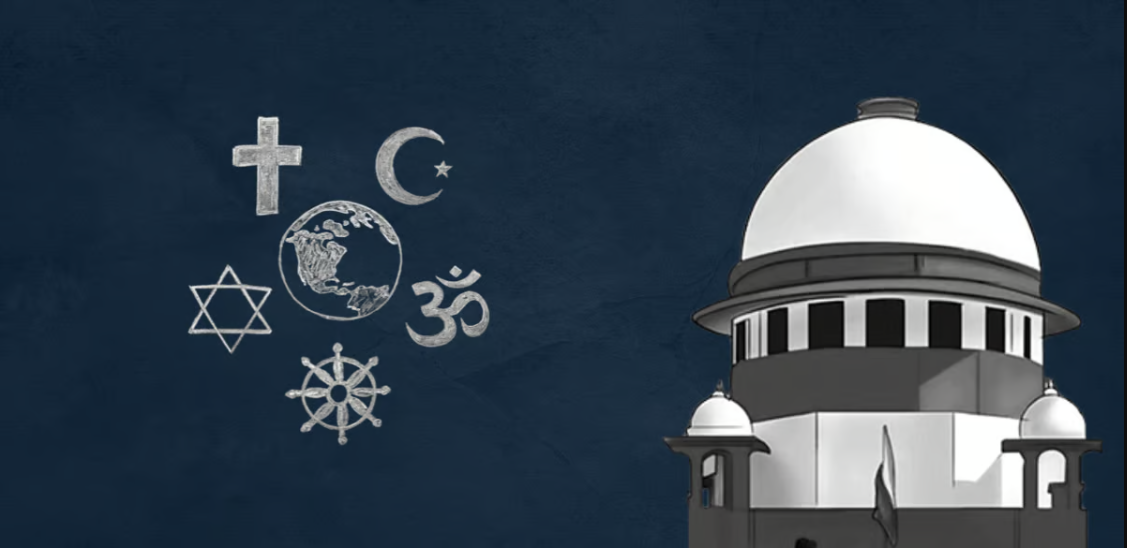A Uddhav Sena leader's praise for the Babri Masjid demolition sparked tensions in the Maha Vikas Aghadi alliance, prompting the Samajwadi Party to declare its withdrawal from the opposition coalition, highlighting deepening divisions within the group.
The political landscape in Maharashtra has witnessed a significant upheaval, marked by the Samajwadi Party's recent decision to withdraw from the Maha Vikas Aghadi coalition. This development unfolded after a key associate of Uddhav Thackeray, the leader of the Shiv Sena UBT, expressed support for the demolition of the Babri Masjid, a controversial historical event that continues to generate heated debates and polarized opinions across the nation.
The Samajwadi Party, which holds two seats in the 288-member Maharashtra Assembly, has taken a firm stand against what it perceives as a shift towards communal ideologies within the coalition. Abu Azmi, the head of the party's Maharashtra unit, made a strong declaration via a tweet in Hindi, emphasizing that while the Samajwadi Party is prepared to operate independently within the state, it categorically rejects aligning with the communal narrative purported by the Shiv Sena UBT.
The catalyst for this dramatic escalation can be traced back to an advertisement published by the Shiv Sena UBT which celebrated the individuals responsible for the Babri Masjid's demolition. Azmi pointedly criticized this move, highlighting how it contradicted the values and principles that the Samajwadi Party stands for. Furthermore, Azmi noted that the remarks made by Thackeray's aide on social media served only to exacerbate the situation, reinforcing the party's decision to part ways with the alliance.
Azmi, in his statements, expressed discontent with the prevailing atmosphere within the Maha Vikas Aghadi, questioning the relevance of remaining in a coalition that mirrors the rhetoric of the Bharatiya Janata Party (BJP). His frustration was evident as he articulated the party's intention to sever ties with the MVA, signaling a potential shift in the political dynamics of the state.
The contentious comment that triggered this rift stemmed from a post by Milind Narvekar, a member of the Legislative Council associated with Shiv Sena UBT. In it, he shared a photograph depicting the demolition of the Babri Masjid alongside a quote from Bal Thackeray, the founder of Shiv Sena, in which he expressed pride in the actions taken during that tumultuous period. This public endorsement of the demolition has raised concerns about the ideological direction of Shiv Sena UBT and its implications for coalition politics in Maharashtra.
The Babri Masjid demolition, which occurred on December 6, 1992, remains a highly sensitive and polarizing topic in Indian discourse. The Shiv Sena's historical admiration for the event and its claim to have played a pivotal role in it has consistently been a source of contention. The issue was further complicated in 2019, when the Supreme Court delivered a landmark ruling, granting the disputed land in Ayodhya for the construction of a Ram Mandir, while providing an alternative site for a mosque. This verdict has only intensified the ongoing conversations around communal identity and historical grievances.
In this politically charged atmosphere, the Samajwadi Party's decision to exit the Maha Vikas Aghadi underscores the complex interplay between regional alliances and the overarching ideological battles that characterize Indian politics today. The repercussions of this split may resonate beyond Maharashtra, potentially influencing the strategies of opposition parties as they navigate their positions in the face of rising communal rhetoric and the ambitions of the BJP.
















Comments 0